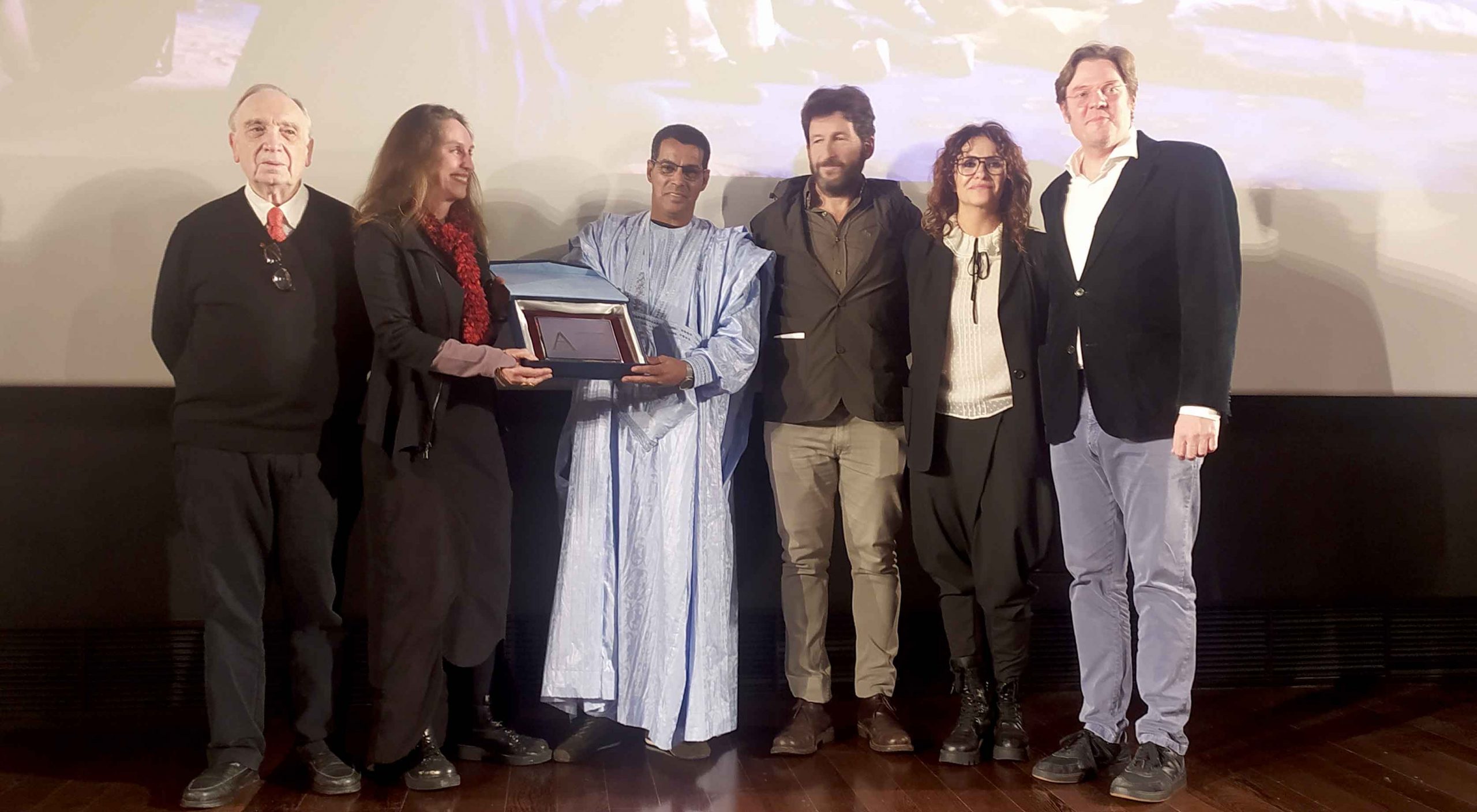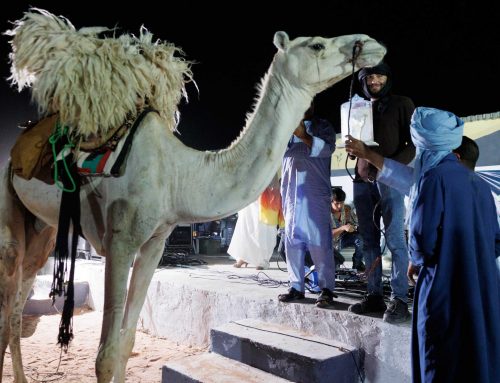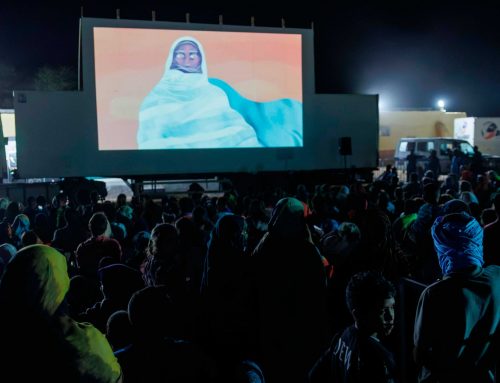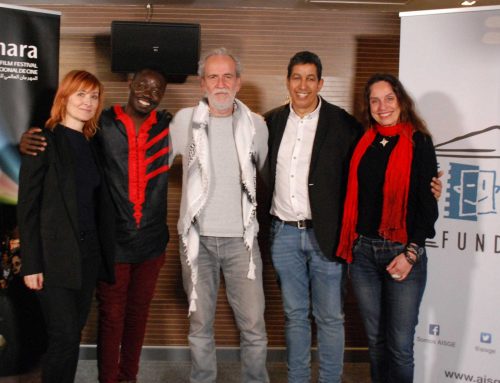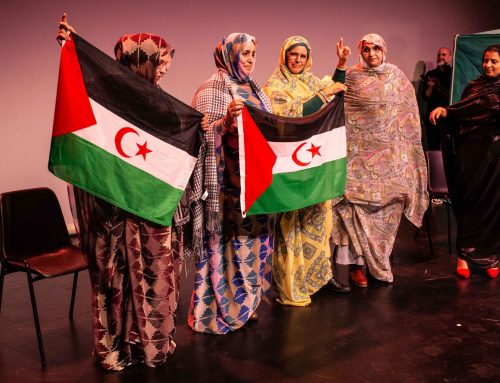FiSahara and the Abidin Kaid Saleh Audiovisual Training School (EFA) received yesterday the González Sinde Award 2022, awarded by the Academy of Cinematographic Arts and Sciences of Spain. Tiba Chagaf, director of FiSahara and the Film School, María Carrión, executive director of the festival, were in charge of receiving the award from the son of the first president of the Academy, José María González Sinde.
With this award, the Academy recognizes FiSahara “for its extensive and hard-working career making visible, training and entertaining the Sahrawi population through its film, culture and human rights festival, and its dedication to education with its audiovisual training school Abidin Kaid Saleh.” In his speech thanking him for the award, Chagaf also transferred his gratitude “to everyone who had to do with that madness that began a long time ago”, in relation to FiSahara.
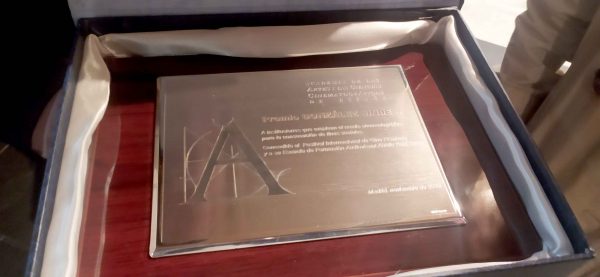
“On behalf of the Sahrawi refugees, we are enormously grateful and proud of all those men and women who dedicate themselves to the seventh art and show us every day that men who play fictitious roles go out on a limb most than those who play real roles“, said Chagaf, who warned that “we will never give up.”
Carrión, for his part, affirmed that “this festival has survived for almost two decades and will continue to survive because it walks firmly towards freedom in very good company.” The executive director took the opportunity to thank Spanish cinema for its support, “because without it, FiSahara would not have been possible, which was born from a dream shared between the Saharawi people, the world of Spanish cinema and the world of solidarity with the Sahrawi people.“
Undelivered bikes
The president of the Academy, Fernando Méndez-Leite, was in charge of conducting an act in which the actress Melani Olivares and the producer Álvaro Longoria dedicated some emotional words to the festival. After the projection of a video in which other figures of Spanish cinema such as Malena Alterio, Carlos Bardem or Juan Diego Botto congratulated the festival and the school, José María González Sinde presented the award.
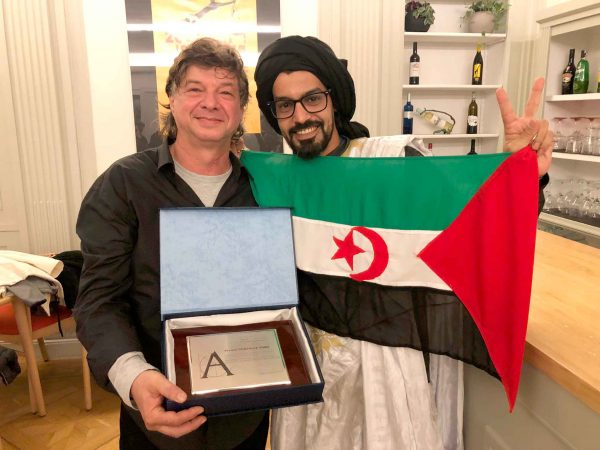
The act motivated meetings such as that of Roberto Lázaro, the first head of studies at the Film School, and Brahim Chagaf, student of the first class and current academic director of the center.
It was then that a particularly endearing moment occurred, when González Sinde remembered how in his youth, when he worked on the filming sets, he met a security guard named Abidin. Over time they became friends and the guard began collecting used bicycles to send to the refugee camps. González Sinde helped him in this initiative, although he admitted that it was not without a certain shame because of the state of some of the bicycles that he delivered to Abidin, to whom everything he could send to the camps seemed fine.
That Abidin was Abidin Kaid Saleh, the Sahrawi war reporter who was a pioneer in filming movies and who gives his name to the Film School. After his war injury and after having laid the foundations of what would become the SADR Ministry of Information years later, Abidin moved to Spain, where he would die of cancer in 2003, without having obtained Spanish nationality despite having with Spanish ID since 1971.
When González Sinde met Abidin, neither of them could have imagined that years later a Film School would bear his name and it would have already trained Saharawi directors and directors whose productions are screened all over the world. González Sinde changed jobs, lost contact with Abidin and could not hand-deliver those bicycles: “Now it is worth giving this award,” she said at the ceremony, “to compensate for that.” And the audience broke into applause.

